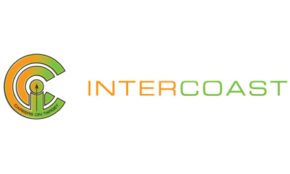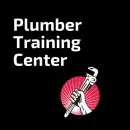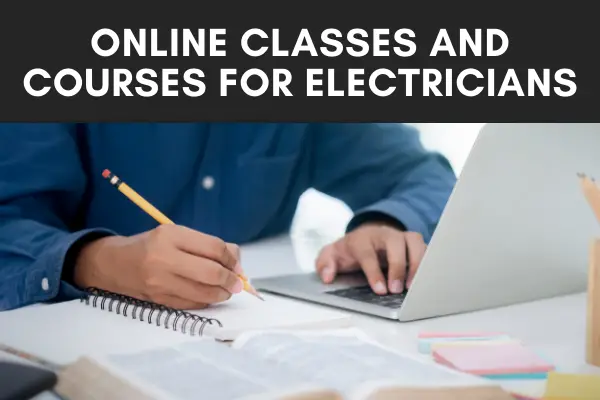The electrician field is growing and salaries are attractive and competitive. Thinking about learning more about becoming an electrician? Though hands on learning is a must for a technical field, there are plenty of online learning activities that will help you reach your career goals in this field. Check out these online classes for electricians:
SCIT
Southern California Institute of Technology (SCIT) offers both in-person and remote/online courses as part of their Electrician Program.
The program includes training for all three electrical sectors: Residential, Commercial and Industrial.
-
8 Month Program with 5 Week Starts
-
Accredited & CA DIR Approved
-
Obtain ET Card to Work in Field
-
Campus & Online Options
The General Electrician program is an accelerated, 8-month hands-on program designed for students to learn electrical installation and troubleshooting for three broad sectors: Residential, Commercial, and Industrial. The program is approved by the California Department of Industrial Relations for the whole general electrician curriculum with the goal to prepare students for a variety of entry-level positions in all 3 electrical sectors.
The program is offered either residentially or fully online. Students who take the program residentially complete lab projects in SCIT’s extensive lab facilities located in Anaheim, CA, including the Residential Wiring Lab, Commercial Wiring Lab, Electric Motors Lab, and the Programmable Logic Controllers (PLC) Lab. Students who choose to take the program fully online are shipped trainers containing all the equipment necessary to perform lab projects with online faculty guidance in the convenience of their home.
Ashworth College
Ashworth offers Online Electrician Training courses that are aligned with the National Electric Code (NEC) to help you develop the safe, electrician skills employers demand.
That includes electrical equipment installation and tool usage, basic electricity and AC current theory, and a wide range of installation procedures for both residential and commercial properties.
Their online electrician classes allow you to learn at your own pace and on your own time. This course is designed to help you develop the safe, job-ready electrician skills employers demand at your convenience rather than forcing you to attend class during business hours.
The course includes the following:
- Textbook: Wiring a House
- Textbook: Modern Commercial Wiring
- Binder™ mobile app for taking your learning materials on-the-go
- Student Portal dashboard for instant access to lessons and support
- Learning Resource Center online libraries and labs
- ProQuest® digital access to thousands of sources for research
- An active online community of fellow students, staff, and grads
Penn Foster
Penn Foster offers an online Electrician School program that allows students to use their problem-solving and troubleshooting skills. The program culminates in a Residential Electrician Career Diploma that can help students prepare to take the first steps toward a career in the electrician field. The courses cover fundamental electrical principles as well as essential electrician knowledge, like the National Electrical Code® (NEC).
Online courses cover essential skills for electricians such as electrical systems and fundamentals, reading electrical drawings, and electrical contracting.
Upon completion of the program, students will be able to…
SkillCat
Offer a free basic electrician course online
CSUC – Regional and Continuing Education
Course Objectives
- Branch and feeder circuits with various types of cable and conduit
- Service of circuit breakers, lighting fixtures, receptacles, switches, paddle fans, and electric motors
- Identifying and fixing electrical problems on “service calls”
- Installation, maintenance, and troubleshooting photovoltaic renewable energy systems
Curriculum
- Preparing and Planning a Residential Wiring Job
Residential workplace safety, hardware and materials used in residential wiring; determining branch circuit, feeder circuit and service entrance requirements - Residential Service Entrances and Equipment
Introduction to residential service entrances; service entrance equipment and installation - Residential Electrical System Rough-In
General Nec® requirements for rough-in wiring; installing electrical boxes, cables, switching and branch-circuits - Residential Electrical System Trim-Out
Lighting fixture installation, device installation, and service panel trim-out - Maintaining and Troubleshooting a Residential Electrical Wiring System
Checking out and troubleshooting electrical wiring systems - Green House Wiring Techniques
Green wiring practices and photovoltaic (PV) system installation - Managing Customer Service
Winning customer service, customer expectations, and moving forward with the four P’s
Intercoast College
If you’re looking for a career in the Electrical Trade, but are struggling to find the time, don’t give up hope! InterCoast College offers a new hybrid training program that will allow you to study at your own pace.
- Fundamentals of electricity
- Power distribution
- Basic trade mathematics
- National electrical code requirements
- Commercial, industrial, and residential wiring requirements
- Other control theories and fundamentals.
- Solar Panel Set-Ups
- You will also learn about how to start your own business after you become a journeyman electrician.
Education 2 Go
Online residential electrician course
This course provides foundational knowledge and skills that are required of an entry-level electrician. You will understand how to use the National Electrical Code, sizing electrical boxes, sizing circuit conductors, sizing fuses or circuit breakers, and sizing service entrance conductors.
You will gain valuable wiring skills, such as proper use of hand and power tools, splicing wires together properly, attaching electrical boxes to building framing members, fishing a cable in an existing wall, and installing an overhead service entrance.
What You Will Learn:
- Branch and feeder circuits with various types of cable and conduit
- Service of circuit breakers, lighting fixtures, receptacles, switches, paddle fans, and electric motors
- Identifying and fixing electrical problems on “service calls”
- Installation, maintenance, and troubleshooting photovoltaic renewable energy systems
UDEMY
The Basics of Household Wiring. The Electrical System A to Z
- Understand how electricity works, how it is generated, transmitted to, and distributed throughout your home.
- Wire a receptacle (regular, switched, GFCI), a single-pole switch (3 and 4-way), a light fixture, and more!
- Have the knowledge and skills to safely and competently complete most home electrical projects and repairs.

